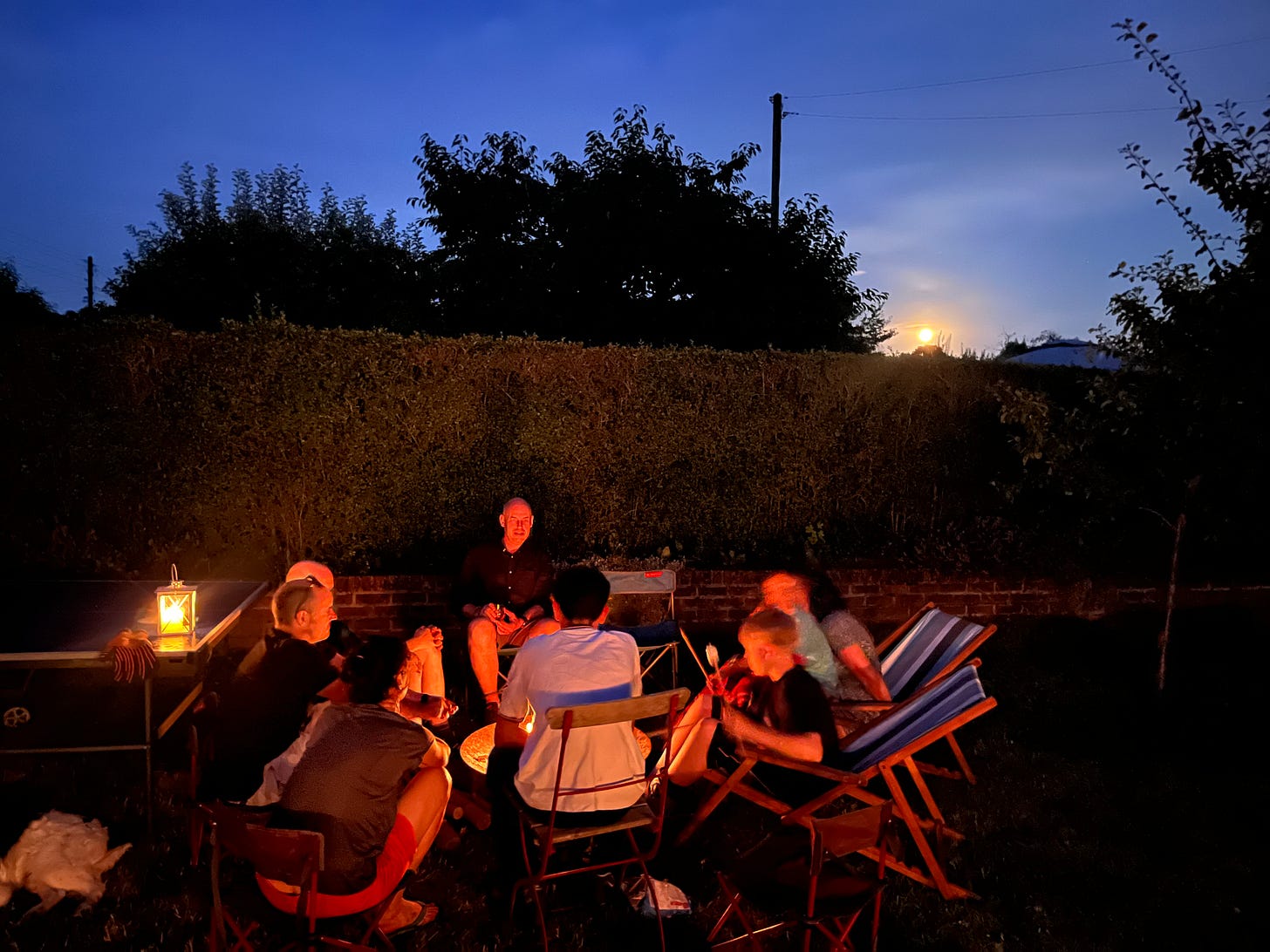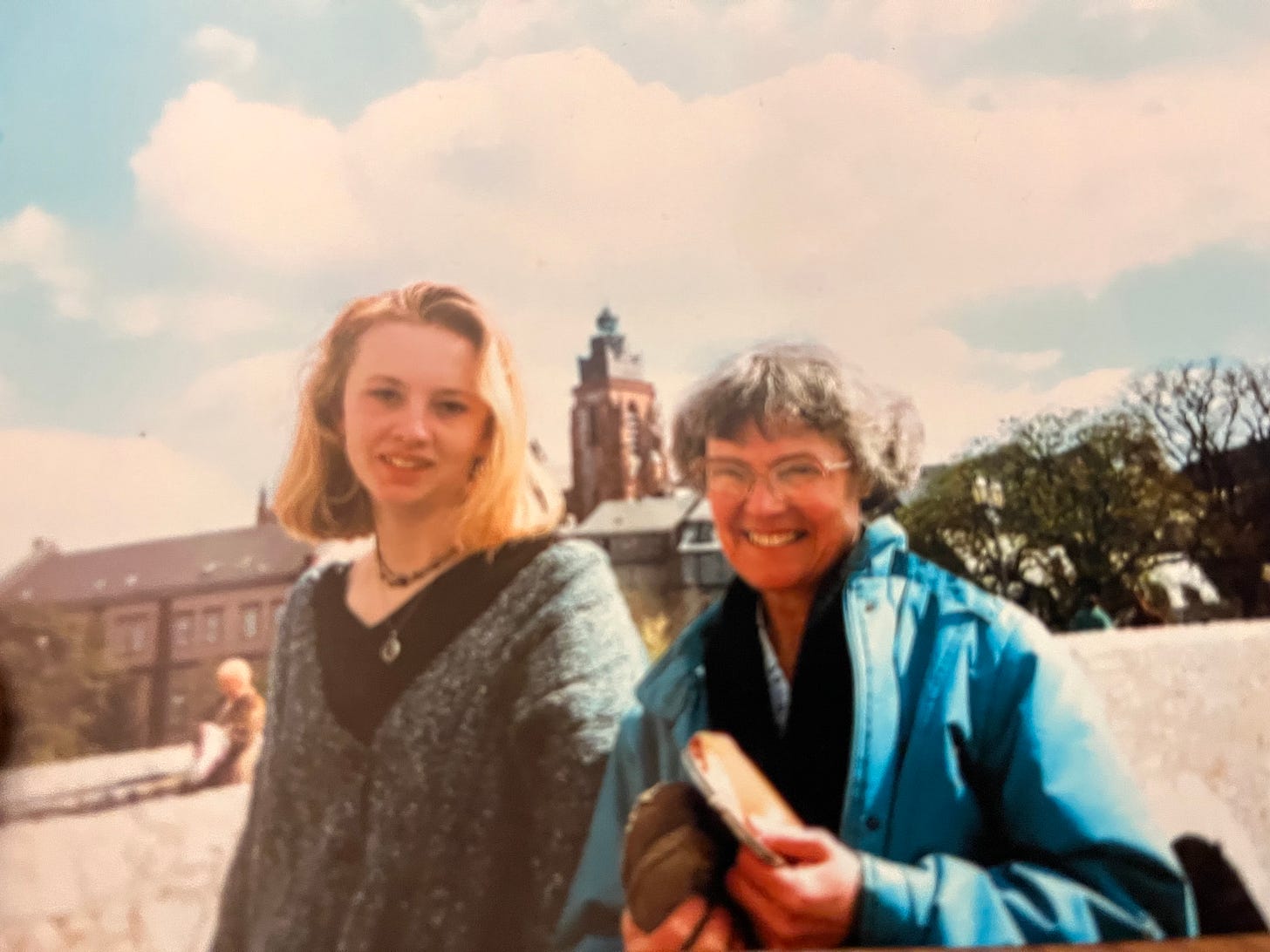How did I end up living in Berlin? Whenever somebody asks me this question, I tell them the same story: the fall of the Berlin Wall inspired me to choose German as one of my A-levels in 1989. That helped me get a job as a graduate trainee at Reuters and then get sent as a correspondent to Bonn, and eventually to reunified Berlin. This neat narrative ends with me gaining dual German citizenship after Brexit along with my bilingual kids, and moving to live just a few hundred metres from where the Wall used to divide the city. So I was surprised recently when I realised that my well-worn story of my pivotal decision didn’t quite add up.
I received this message from an old school friend: “We were reminiscing about where we were the day the Berlin Wall came down – we were listening to the news breaking on a radio in the 6th form classroom. Fond memories”.
It turns out that the chronology of my story was out by almost a year, I had already decided to study German A-level months before the Wall fell, although political upheaval across former Communist Eastern Europe did mean it was an exciting time to be learning German.
We all do this with the stories of our lives: subconsciously we edit the plot of our memories to make the narrative arc smoother and more compelling. We are continuously tweaking our “narrative identity” to help us make sense of our place in the world and to communicate our histories and values to other people.
We repeat and refine our stories of the major turning points in our lives to ourselves and others: the times we met our closest friends and significant others, the birth, illness and deaths of loved ones, starting and ending key jobs.
When asked why I became a journalist, I often recall how a visit to a chemical engineering lab filled with only male students made me realise I wanted to study politics and economics rather than become a scientist. I have been reliving these moments as I try to help my son weigh options about his own future studies.
(An afterthought, I wonder if any young people watching the fall of the Assad regime this weekend might be inspired to study Arabic or make another big life decision. Some of the thousands of Syrian refugees celebrating in Berlin said they want to return home to rebuild their country.)
Sometimes two turning points intersect: the sudden death of my dear Aunt Kate at a relatively young age five years ago helped me see that it was time to leave Reuters and do something different. I trained as a leadership coach, strategic consultant and facilitator and started a new chapter.
Blessed are the storytellers
Stories like these can help us make sense of our lives and it usually doesn’t matter if they are accurate. Telling good stories about ourselves is an essential life skill.
Robyn Fivush, professor of psychology at Emory University, says that the stories we tell each other make up 40 percent of everyday conversation.
“Individuals who are able to tell more detailed, more coherent, more compelling stories about who they are show a higher sense of well-being. They are more satisfied with life, they show less anxiety, higher self esteem and they show a higher sense of meaning and purpose in life,” she told the BBC.
But sometimes our stories can imprison us.
In my coaching training, I learned to analyse the language people use when talking about their lives. For example, a person who is feeling stuck will often use the passive voice to describe their situation. I wonder what that means for the psychology of people who speak languages that use the passive more often, like German, or for us journalists, who are taught to venerate the active voice in our writing?
Victors or victims?
Maria Konnikova, a writer who became a professional poker player, said that one of the keys to her success at cards was learning how to reframe the stories she told herself about the hands she had won, and lost.
“How we phrase sentences – are we the one doing the acting or being acted upon? – can determine whether we have an internal or external locus of control, whether we’re masters of our fates or peons of forces beyond us. Do we see ourselves as victims or victors?” she writes in The Biggest Bluff.
“A victim: the cards went against me. Things are being done to me, things are happening around me and I am neither to blame nor in control. A victor: I made the correct decision, sure the outcome didn’t go my way, but I thought correctly under pressure and that’s the skill I can control.”
One way to cultivate a victor’s mentality is to tell a story about a difficult experience first from a negative perspective and then from a positive perspective. By doing this we can tap in the power of the redemptive narrative.
When I tried this out during my coaching training, I told the story of a job interview that went awry when I turned up without a power point presentation that the panel was expecting. I didn’t get the job. But in my positive retelling, I realised I had done a pretty good interview even without a presentation and it was just as well I wasn’t hired. If I had moved back to the UK to take the position, my family would have missed out on the chance to apply for EU citizenship as the Brexit vote happened later that year. And I ended up working with the same people anyway, but in a more flexible way.

The old friend who reminded me where we were when we heard that the Berlin Wall had fallen 35 years ago tracked me down because she was going to a school reunion, and she knew our German teacher, Marjorie Peet, would be there. So I got the chance to write a letter to Marjorie to thank her for playing such a pivotal role in my life. She is a stickler for German grammar and introduced me to the plays of Berthold Brecht, which helped me pass the Oxford university entrance exam. In her reply to my letter, my teacher said she finds it hard to believe I am still struggling to perfect my pronunciation of the Umlaut but she is glad I have mastered German word order, at least. Vielen Dank Frau Peet!
What I am reading:
The Hand That First Held Mine - Maggie O’Farrell - Gripping from the first page, a wonderful story spanning 1950s Soho and the present day about two women’s experience of escape, creativivity and motherhood.
Bei euch ist es immer so unheimlich still - Alena Schroeder - my family jokes that my favourite genre is books about “mothers and their complicated relationships with their daughters” and this novel by a German friend definitely falls into that category. It the story of a family of beautifully drawn characters from the war up until the fall of the Wall. I hope it is translated into English soon.






